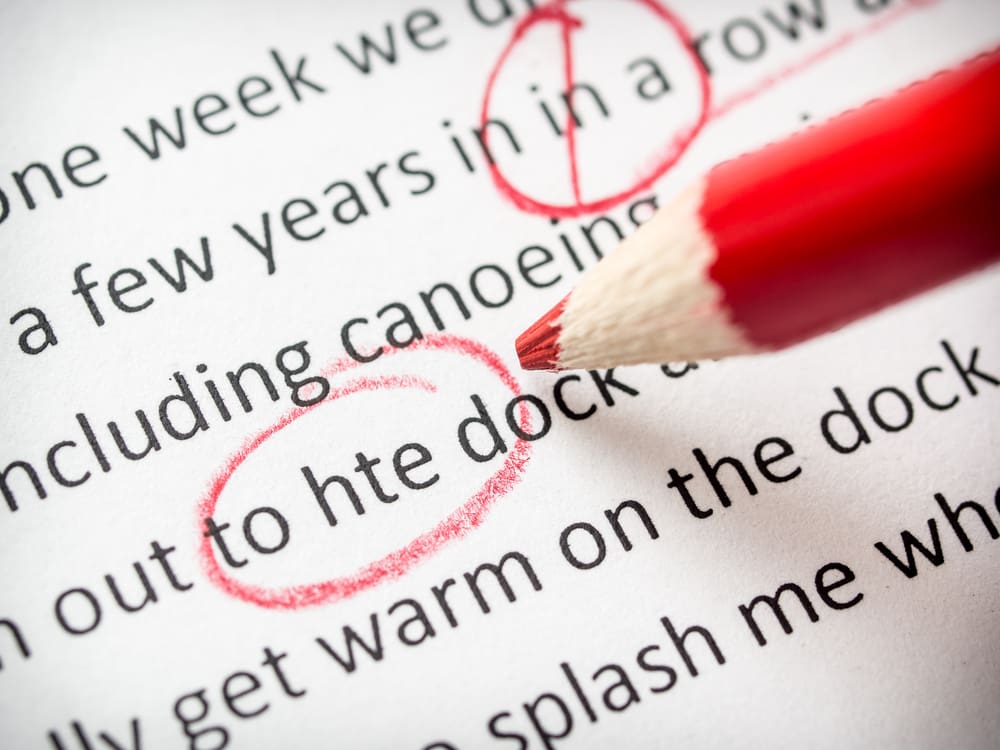Editing is possibly the most crucial–and costly–service you’ll need as an independent publisher[footnote]https://blog.reedsy.com/cost-to-self-publish-a-book[/footnote]. Here are some questions to ask when interviewing your book editor to be sure you find the right editor for your project and the best value for your investment.
Q1. What type of editor are you?
Just because someone has the word “editor” in their title doesn’t mean they have the right editing skills to edit your book. Some editors (contributing editors, editors at large) might not actually have editing experience at all! You’ll want to find an editor who has all the skills you need, or several editors for different phases of the process.
- Developmental editors, best brought onboard in the early stages, help you shape and structure the work as a whole.
- Line editors go line by line through your manuscript, finessing the writing, voice and content. This type of editing involves (re)writing.
- Copy editors fix grammatical issues and remedy errors and inconsistencies.
- Style editors make the text conform to the accepted style of its genre–such as APA, Chicago, MLA, AP or others. This round of edits addresses stylistic elements such as capitalization, preferred spellings, punctuation, references and footnote formatting.
- Proofreaders deploy a close eye to catch and correct typos, misspellings and potentially embarrassing mistakes.
To find all these skills (and the willingness to use them) in one person would be rare. If you’re on a budget, look for a developmental editor who also line edits and a copy editor who can also proofread with attention to style.
Q2. What other books have you edited?
Editing a book is a different process than editing a magazine, a newspaper, blog posts or any other type of content. Just because someone is experienced in these formats doesn’t mean they’re qualified to edit your book.
Ask to see finished books edited by your prospective editor, and ask what role they played in the process–did they come in at the beginning, the middle or the end? Were other editors involved? Did they help to shape and sculpt the book or were they quality control? How many hours did the project take them? How would your book compare to this book?
Q3. What editing do you think my book needs?
When pricing an editing job, it’s good for both parties to get a clear sense of the work that will be involved up front. Send your prospective editor a short sample chapter so they can assess the time involved when they’re quoting you. This will help to avoid surprises on both sides later. In this process, you’ll also discover the type of edits the professional would recommend and how they might interact with you. If they aren’t what you had in mind, you can go a different direction. (As can they.) Don’t be turned off if they tell you your book needs work. Part of a good editor’s job is to make your book better–you want an editor to be honest with you.
Q4. Do you have any subject matter or genre expertise that may add extra value when editing this book?
Examples might include someone who has been editing parenting content if you write about family issues or who specializes in young adult fiction if that’s the genre you’re in.
Q5. How many rounds of edits do you think this book will need?
In traditional editing, books get numerous edits by numerous professional editors. It’s unlikely (unless you’re an experienced writer or editor yourself) that your book, which has not had the handholding of a traditional publishing house as it’s developed, will need only one. More than likely, you’ll need at least a few rounds of big-picture edits in which an editor suggests major changes you should make to make the book stronger. These would be followed by several passes for copy, style and proofreading.
Q6. What styles of editing are you familiar with or expert in?
Different editors ascribe to different style guides depending on their niche. Book editors, for instance, are often familiar with the Chicago Manual of Style, whereas editors who come from newsrooms may be most familiar with the AP Stylebook. But other styles–APA, AMA, MLA and beyond–are also prevalent in certain niches. While a good editor can certainly pick up a new style, not every editor will be good at this, or want to be.
Q7. How long will it take for you to edit my book, based on the other projects on your plate?
If someone is in demand, with lots of projects competing with yours, that’s a good sign (though it may slow down your project). But you should align on realistic expectations up front to avoid disappointment.
Q8. What will I need to do as the writer to ensure a professionally edited book?
Keep in mind that your editor is not a ghostwriter. While line editing involves some rewriting, the more heavy lifting your editor does, the bigger your editing bill will be. To minimize costs, your editor will likely give you constructive suggestions, and have you tackle the first round of rewriting and restructuring yourself. If you’re not willing and able to do this work, you should look for a ghostwriter instead of an editor.
Q9. What do you charge, how will you bill me and what are your terms?
Key questions to ask: Do you charge by the number of words or by the hour, and if by the hour, how many hours do you think this project will take? Are there different charges for different types of editing? What is the cost for revisions? At what intervals will you bill me? Do you require a deposit? What forms of payment do you accept (credit card, check, paypal, square, etc.)?
Also, inquire what happens if the project doesn’t work out, whether due to illness, difference of opinion, one party’s inability to meet their commitments in the process or any other reason. Can you walk away? Can they? What notice or credit are you obliged to provide to each other if this happens? Remember, this is a business relationship, and it’s best to figure these things out up front.
Q10. What tools will I need to use to collaborate with you?
Most editors will use comments capabilities in Word, so you’ll need to learn how to navigate tracked changes. Others might use Google docs, or edit directly in book formatting software, such as Pressbooks or some other interface. You’ll want to establish conventions for working together at the outset.
Optional. Do you have book editing references?
Once you’re serious about an editor, you may want to talk with other writers they have worked with on book projects. This can weed out anyone who has overstated their qualifications for your project, but more important, it will give you an idea what to expect from the working relationship.
Want more tips on editing your book? Check out The Pressbooks Guide to Self-Publishing.
Elizabeth Mays is the director of marketing and operations for Pressbooks.com and previously worked as an editor for 15+ years.




